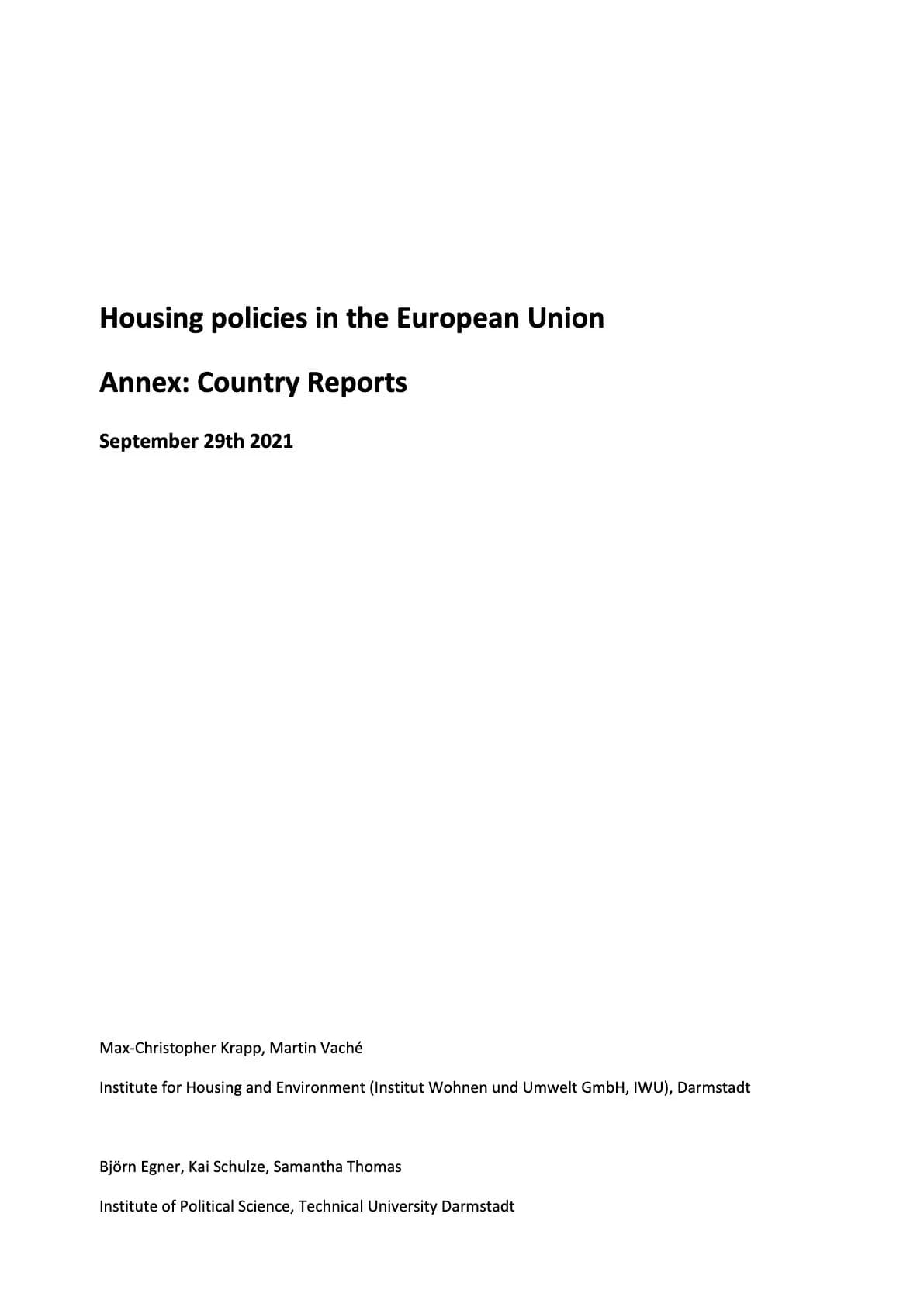AI-Generated Summary
Context and Overview
This document, published by the Institute for Housing and Environment (Institut Wohnen und Umwelt GmbH, IWU), presents a comprehensive analysis of housing policies across the European Union. The authors—Max-Christopher Krapp, Martin Vaché, Björn Egner, Kai Schulze, and Samantha Thomas—are associated with the Institute of Political Science at the Technical University Darmstadt, indicating a strong academic foundation in the subject matter.
Key Data and Statistics
The document encompasses detailed reports on the housing situations in various EU countries, highlighting significant statistics such as population densities, proportions of elderly citizens, and housing stock characteristics. For instance, it notes that in Austria, approximately 40% of the housing stock consists of single-family homes, while 61.8% of the population resides in urban areas. In Belgium, about 65% of dwellings are owner-occupied, showcasing a strong preference for home ownership. 🇪🇺 Governance Structures Governance structures in the housing sectors differ across EU member states. In Austria, housing policy is managed at multiple levels, including national, regional, and local governments. The Federal Ministry for Digital and Economic Affairs plays a crucial role, along with various regional bodies responsible for housing subsidies and regulations. Similarly, Belgium’s regional governments oversee housing policy, with municipalities handling local implementations.
Housing Stock Characteristics
The age distribution of housing stocks reveals trends in various regions. For instance, Bulgaria's housing stock shows a significant share of properties built in the post-war decades, with approximately 52% being single-family homes. In contrast, the Czech Republic has a notable proportion of pre-1918 dwellings, alongside a higher share of multi-family houses from the 1970s. This data underlines the historical context of housing quality and availability in different countries.
Housing Tenure Types
Housing tenure structures are predominantly owner-occupied across many EU countries, although rental markets are vital, particularly in urban settings. In Austria, nearly half of households are owner-occupiers, while Belgium has a diversified rental market consisting of social housing and private rentals. The Czech Republic, on the other hand, has around 70% of its housing stock in owner-occupation, indicating strong market dynamics favoring home ownership.
Sustainability and Future Trends
Sustainability is increasingly becoming a focal point in housing policies throughout Europe. The document indicates that countries are beginning to prioritize energy efficiency and environmental considerations in their housing strategies. For example, many regions are implementing refurbishment programs aimed at improving energy efficiency in existing housing stock, aligning with broader EU climate goals.
Challenges in Housing
Despite the positive trends, challenges remain in housing affordability and accessibility. The document reports significant disparities in housing costs, particularly in urban areas where rising prices are forcing lower-income groups into precarious living conditions. Additionally, issues such as homelessness and the quality of informal housing are highlighted as critical areas needing attention, especially for vulnerable populations. This comprehensive report serves as a vital resource for policymakers, housing advocates, and researchers seeking to understand and improve housing conditions in the European Union while addressing sustainable development goals.
